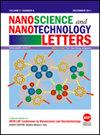Cognitive Diagnostic Assessment of Power Supply Magnetic Components Design Based on Bayesian Network
引用次数: 0
Abstract
The power electronics engineering education is aimed at helping students in becoming qualified electronics engineers. However, the existing evaluation method cannot reflect the students’ performance in knowledge-structure and skillsets objectively and accurately. To address these issues and improve the effectiveness of the current evaluation method in the field, we propose a Bayesian network model-based cognitive diagnostic assessment method and demonstrate it to evaluate students’ knowledge and skills condition with the switched-mode power supply (SMPS) magnetic components design task. The paper starts with a brief introduction to the SMPS inductor design. It continues with the Bayesian network model-based inductor proficiency model, inductor evidence model, and the task model for power magnetics volume and weight in the aerospace SMPS. Then we identify the parameters in the graded response model, relations among variables, and calculate the conditional probability between variables. Finally, we use Markov Chain Monte Carlo estimation method to get the posterior probability distribution of proficiency variables by OpenBUGS. The results show that this cognitive diagnostic assessment system can effectively reflect the students’ study performances, scientifically advise their future study plans, and effectively achieve the education goals.基于贝叶斯网络的电源磁性元件设计认知诊断评估
电力电子工程教育旨在帮助学生成为合格的电子工程师。然而,现有的评价方法不能客观、准确地反映学生在知识结构和技能方面的表现。为了解决这些问题,提高现有评估方法在该领域的有效性,我们提出了一种基于贝叶斯网络模型的认知诊断评估方法,并以开关电源(SMPS)磁性元件设计任务为例,对学生的知识和技能状况进行了评估。本文首先简要介绍了SMPS电感的设计。接着介绍了基于贝叶斯网络模型的电感器熟练度模型、电感器证据模型以及航空航天SMPS中功率磁性体积和重量的任务模型。然后对分级响应模型中的参数、变量之间的关系进行辨识,并计算变量之间的条件概率。最后,利用OpenBUGS利用马尔可夫链蒙特卡罗估计方法得到熟练度变量的后验概率分布。结果表明,该认知诊断评估系统能够有效地反映学生的学习表现,科学地指导学生未来的学习计划,有效地实现教育目标。
本文章由计算机程序翻译,如有差异,请以英文原文为准。
求助全文
约1分钟内获得全文
求助全文
来源期刊

Nanoscience and Nanotechnology Letters
Physical, Chemical & Earth Sciences-MATERIALS SCIENCE, MULTIDISCIPLINARY
自引率
0.00%
发文量
0
审稿时长
2.6 months
 求助内容:
求助内容: 应助结果提醒方式:
应助结果提醒方式:


